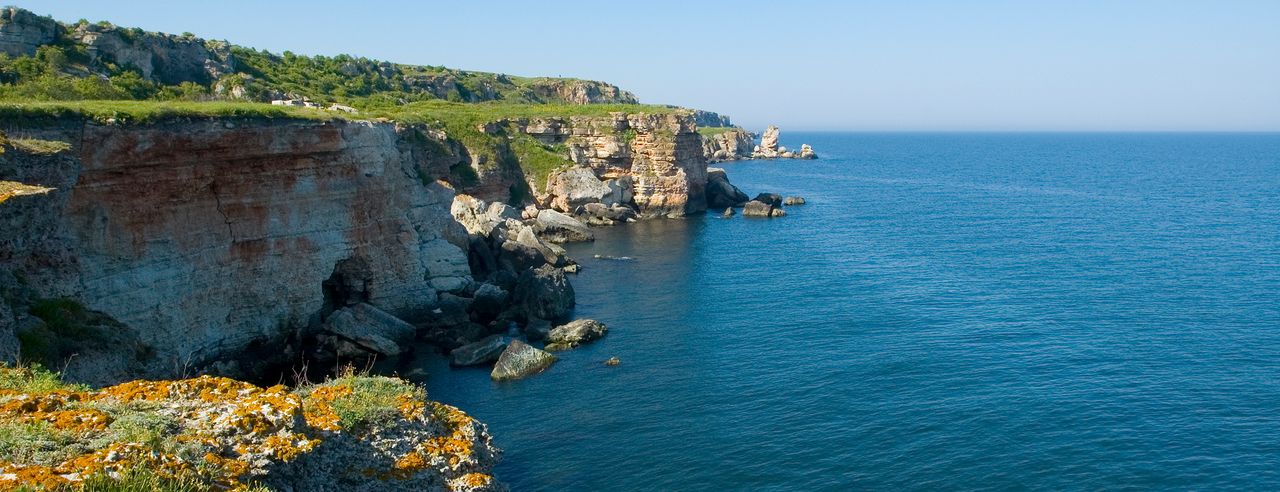Bulgaria, the country on the Black Sea coast, offers you the best conditions to spend a spa vacation. It not only has a varied and beautiful nature, but is also very easy to reach from Germany. High-quality spa treatments complete the spa experience.

Spa in Bulgaria
Our customers love us
Soothing spa moments full of relaxation
The most popular hotels for Spa in Bulgaria
Get to know Bulgaria on your spa holiday
Most people associate a spa vacation in Bulgaria with holidays by the sea. However, the country in southeastern Europe has so much more to offer. This ranges from mountains and picturesque mountain villages to gorgeous sights. Spas in Bulgaria offer you the best entertainment and plenty of relaxation. What you will get during your spa vacation in Bulgaria and what distinguishes the spa hotels in Bulgaria, we reveal to you in the following.
What makes a spa hotel in Bulgaria special
Spa hotels in Bulgaria captivate by their favorable prices and by the fact that they offer thereby full comfort. The spa hotels in the 4 - 5 star segment have upscale facilities and a service that leaves nothing to be desired.
Not far from your spa hotel is the fine sandy beach. But cooling off you will not only reach in the Black Sea, also the generously designed pool landscapes invite you to swim a few laps.
The rooms are elegantly furnished and have all the equipment you could wish for. Under the rain shower you start freshly into the day, the minibar is filled for the evening with cool drinks. You can book your stay with either breakfast, half or full board.
In the stylish wellness areas of the spa hotels, you can enjoy a soothing massage. In addition, the resorts offer other diverse treatments, which are either already included or can easily be booked in addition.
The best spa treatments in Bulgaria
Among the classic spa treatments during your spa vacation in Bulgaria are extended massages, where you can completely switch off and relax. In addition, you can spend soothing hours in the sauna, in the jacuzzi or in the steam bath and leave everyday life behind you.
Relax in the large thermal-indoor pool or outdoor pool and enjoy your spa vacation in Bulgaria to the fullest. Hypothermal mineral water is used for various diseases and supports recovery. So you can refuel new forces and relax at the same time in your spa holiday in Bulgaria.
To make you feel really good in your skin during wellness in Bulgaria, many spa hotels also offer a range of beauty treatments. Whether it's a manicure, pedicure or one of the anti-aging treatments, you're sure to feel a little younger right after one of the beauty treatments.
The most beautiful places for a spa holiday in Bulgaria
The hotel town of Albena is located directly on the Black Sea coast. There you can relax on the five kilometers long sand beach or visit one of the most beautiful nature reserves in Bulgaria. And since Albena is a spa, it is perfect for wellness. Among other things, the largest spa and spa center in Bulgaria is located there.
Central Bulgaria is an excellent destination for a spa holiday thanks to its abundance of natural thermal springs and tranquil settings. Visitors can enjoy a variety of spa treatments amidst the region's serene landscapes, including mineral baths and therapeutic massages. With fresh mountain air and holistic wellness programs, spa resorts in Central Bulgaria offer a rejuvenating escape from the stresses of daily life.
FAQ - Our tips for your perfect spa holiday in Bulgaria
You can book offers for a spa vacation in Bulgaria with us from $64.
As the temperatures in Bulgaria between May and September are up to 40 degrees, the period between September and October is particularly suitable for a trip to Bulgaria.
A spa trip to Bulgaria offers itself, due to the comparatively low prices on site, also for people who have a lower income. In addition, you can reach the country not only by plane within 2 hours, but also very easily by car.
Who books his trip as early as possible, can save a lot of money this way. But also among the last minute offers you will find attractive offers.
One of the most famous sights in Bulgaria is the Sunny Beach in the municipality of Nessebar, which stretches over eight kilometers and is 100 meters wide. But also the sight of the Alexander Nevsky Cathedral in Sofia you will certainly not forget so quickly. If you want to learn more about the history of Bulgaria, you should definitely visit the national history museum, which is also located in Sofia.
Most vacationers come to Bulgaria for a beach vacation, which also offers trying many water sports. If you want to get your body in shape during the vacation, you can do it in one of the gyms overlooking the sea
